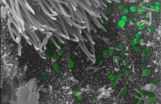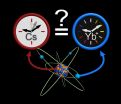(Press-News.org) (WASHINGTON, November 18, 2014) - New evidence suggests that therapeutic plasma exchange and appropriate blood testing could help patients who are in urgent need of heart surgery, but have a history of an adverse reaction to the blood thinner heparin, according to a study, published online today in Blood, the Journal of the American Society of Hematology (ASH).
Many patients who take blood thinners will eventually require some form of heart surgery, which requires the administration of large quantities of heparin to prevent clots. Some patients who have taken heparin develop what is known as heparin-induced thrombocytopenia (HIT), in which they develop antibodies against the heparin, activating platelets and paradoxically forming clots.
When patients with a history of HIT require urgent heart surgery, physicians must test for the presence of HIT antibodies to determine whether the patient can be re-exposed to heparin during the procedure. While HIT antibodies generally dissipate naturally, they can sometimes remain at high levels, requiring physicians to take measures to lower them for patients who urgently require heart surgery. To lower HIT antibodies in these patients, a procedure has been advocated called therapeutic plasma exchange (TPE), in which blood is taken from the patient, plasma is removed, and blood and replacement fluids are reinfused into the patient.
Hematologists use two types of tests to measure HIT antibodies and to determine patient readiness for heparin re-exposure during surgery. These include a functional platelet serotonin-release assay and a highly sensitive enzyme-immunoassay. While the functional assay measures release of serotonin, a direct marker of platelet activation, the immunoassay casts a wider net, detecting both clinically significant and insignificant levels of HIT antibodies. If the more widely used immunoassay indicates presence of HIT antibodies in a patient, surgery is usually delayed or plasma exchange must be performed.
While practitioners have historically understood the two assays to provide similar conclusions, new evidence suggests that the functional assay may characterize HIT antibody levels as relatively low while an immunoassay result could indicate the opposite. This evidence is summarized in a new case report in which a 76-year-old female with kidney cancer and previous HIT required urgent cardiac surgery to remove a tumor that had spread to her heart. After both her initial functional and immunoassays indicated the presence of HIT antibodies, her doctors deemed her ineligible for surgery. But after repeated TPE, the research team performed both the functional and immunoassays on the patient again and this time observed strikingly different results.
"We were surprised to see that levels of HIT antibodies in this patient fell very quickly according to the functional assay, yet the antibodies detected by the immunoassay remained high," said lead study author Theodore Warkentin, MD, of McMaster University in Canada. "This suggested to us that while physicians in many situations may be waiting for the immunoassay to indicate lower antibody levels, patients in urgent need of heart surgery may be ready much earlier than the results suggest."
To better understand the dissociation observed between results of the two tests, Dr. Warkentin's team developed a model comparing functional and immunoassay results among 15 HIT blood samples, which were sequentially diluted and tested with both assays to mimic the effects of repeated TPE. The researchers observed that HIT antibody levels as measured by the functional assay decreased rather quickly, while the immunoassay continued to indicate high levels.
This evaluation suggests that the sensitivity of the immunoassay may provide an overly conservative estimate of HIT antibody levels in patients and their clinical relevance. The analysis illustrates how quickly platelet-activating properties can decline in a patient, either naturally or by using TPE. The observations also support the use of repeated TPE as a therapeutic strategy prior to planned heparin re-exposure among patients with a recent HIT episode who require urgent cardiac surgery.
"Based on these findings, physicians should consider utilizing both of these tests when preparing a patient with a history of HIT for urgent heart surgery, considering the functional assay result as the stronger indicator of a patient's readiness," said Dr. Warkentin. "For these patients, TPE can be a useful option to help rapidly reduce their remaining HIT antibody levels, minimize their risk of developing clots, and get them into the operating room sooner."
INFORMATION:
Blood, the most cited peer-reviewed publication in the field of hematology, is available weekly in print and online. Blood is the official journal of the American Society of Hematology (ASH), the world's largest professional society concerned with the causes and treatment of blood disorders.
ASH's mission is to further the understanding, diagnosis, treatment, and prevention of disorders affecting blood, bone marrow, and the immunologic, hemostatic, and vascular systems by promoting research, clinical care, education, training, and advocacy in hematology.
blood® is a registered trademark of the American Society of Hematology.
Mycoplasma gallisepticum causes chronic respiratory disease in birds. The illness particularly affects domestic chicken and turkey flocks. The bacteria are especially life-threatening for the animals when they occur in combination with other infections. In order to control the spread of the disease, poultry farms in the EU must be proven free from Mycoplasma gallisepticum or face being closed.
Mycoplasma gallisepticum is related to the human pathogen Mycoplasma pneumoniae, the causative agent of human bronchitis and pneumonia. Mycoplasmas are among the world's smallest ...
New research by a team of European physicists could explain why the universe did not collapse immediately after the Big Bang.
Studies of the Higgs particle - discovered at CERN in 2012 and responsible for giving mass to all particles - have suggested that the production of Higgs particles during the accelerating expansion of the very early universe (inflation) should have led to instability and collapse.
Scientists have been trying to find out why this didn't happen, leading to theories that there must be some new physics that will help explain the origins of the universe ...
WINSTON-SALEM, N.C. - Nov. 18, 2014 - Although every person's DNA remains the same throughout their lives, scientists know that it functions differently at different ages.
As people age, drastic changes occur in their DNA methylation patterns, which are thought to act as a "second code" on top of the DNA that can lock genes in the on or off position. However, what the consequences of these changes are remains a mystery.
To begin deciphering this process, scientists at Wake Forest Baptist Medical Center studied methylation patterns in the blood cells of 1,264 persons ...
This news release is available in German.
Are the fundamental constants really constant? Recent investigations carried out at the Physikalisch-Technische Bundesanstalt (PTB) have shown that one essential fundamental constant - namely the mass ratio of protons to electrons - can have changed only by a maximum of one part in a million over the age of our solar system (i.e. extrapolated over approx. 5 billion years). Previously, scientists deemed the possible changes to be twice as high. To obtain this result, physicists from PTB compared caesium and ytterbium atomic ...
Spices and herbs are rich in antioxidants, which may help improve triglyceride concentrations and other blood lipids, according to Penn State nutritionists.
Triglyceride levels rise after eating a high-fat meal -- which can lead to an increased risk of heart disease. If a high-antioxidant spice blend is incorporated into the meal, triglyceride levels may be reduced by as much as 30 percent when compared to eating an identical meal without the spice blend. The spiced meal included garlic powder, rosemary, oregano, cinnamon, cloves, paprika, turmeric, ginger and black pepper.
Sheila ...
Scientists have discovered how a gene mutation can lead to diseases that occur when the immune system attacks the body by mistake.
Understanding how these mechanisms work could help scientists to develop new treatments for autoimmune diseases such as Lupus and neurodegenerative conditions including Motor Neurone Disease.
Researchers found that a mutation in the gene - called ADAR1 - causes a defect in an alarm system in our cells that normally protects the body from viruses and other infections. This means that the alarm system is tripped by the cell's own molecules, ...
A new method for examining the Ebola virus genome could make surveillance quicker and cheaper for West African nations, and help detect new forms of the virus. The detailed procedure is being shared with the research community along with the study paper, which is freely available in the open access journal Genome Biology.
With over 13,000 cases and nearly 5,000 deaths in eight affected countries, the current Ebola outbreak in West Africa is the largest to date, the first to spread to densely populated urban areas, and represents the first time the virus has been diagnosed ...
Celiac disease patients suffer from gluten intolerance and must adjust to a life without gluten from food sources like wheat, rye and barley. There is no treatment of the disease except lifelong gluten-free diet, but now a Danish/Norwegian research team publishes new research, that may lead to the development of a drug against the disease.
Gluten intolerance is often caused by celiac disease, which makes the human organism sensitive to gluten proteins from certain cereals. No known drug can cure the disease or make the patient able to eat gluten again, and therefore the ...
A new study has shown for the first time how people can be trained to "see" letters of the alphabet as colours in a way that simulates how those with synaesthesia experience their world.
The University of Sussex research, published today (18 November 2014) in Scientific Reports, also found that the training might potentially boost IQ.
Synaesthesia is a fascinating though little-understood neurological condition in which some people (estimated at around 1 in 23) experience an overlap in their senses. They "see" letters as specific colours, or can "taste" words, or ...
Researchers at the Bellvitge Biomedical Research Institute (IDIBELL) and doctors at University Hospital of Bellvitge, together with a team of researchers from the University of California, Cincinnati Children's Hospital, California Pacific Medical Center, University of Pittsburgh, University Emory and Stanford University (USA) and the Children's Hospital of Mexico Federico Gomez, have developed a genetic test that identifies patients at high risk of kidney transplant rejection. From a peripheral blood sample and test development easier, you can tell noninvasively and before ...

